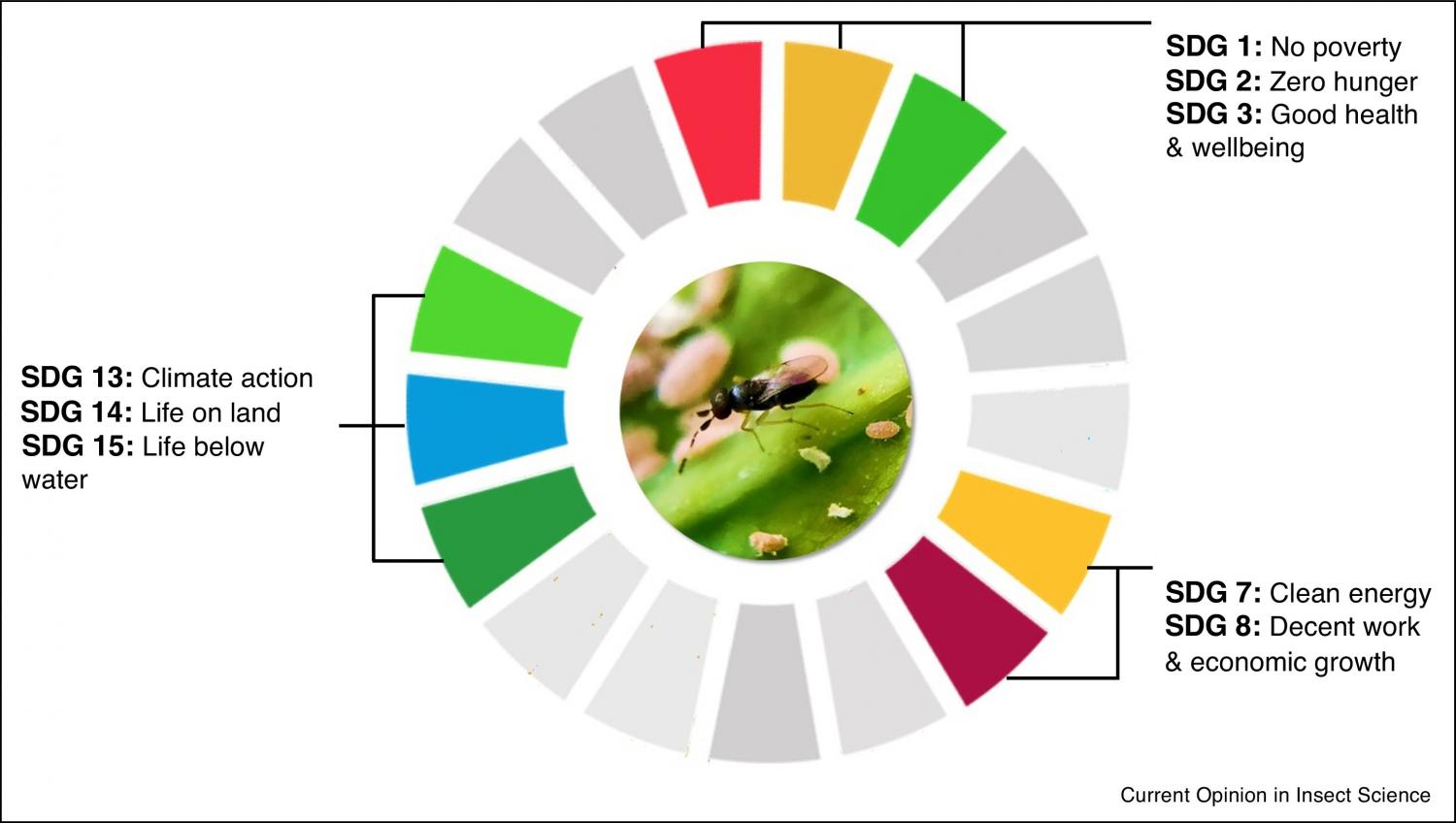
Elsevier, Current Opinion in Insect Science, Volume 40, August 2020
Insects are indispensable actors within global agri-food systems and ensure the delivery of myriad ecosystem services. A progressive decline in insect numbers — as inflicted by habitat loss, pollution or intensive agriculture — can jeopardize a sustained provisioning of those services. Though we routinely disregard how insects help meet multiple sustainable development challenges, a gradual insect decline can have grave, long-lasting consequences. Here, we describe how insect-mediated biological control not only defuses invasive pests and can reconstitute crop productivity, but equally delivers other positive social-ecological outcomes. Drawing upon the pan-tropical invasion of the cassava mealybug and its ensuing suppression by the monophagous parasitoid Anagyrus lopezi, we illuminate how biological control contributes to food security, poverty alleviation, human wellbeing and environmental preservation. Trans-disciplinary research and ‘systems thinking’ are needed to maximize the potential of these biodiversity-driven interventions, and thus reap the net positive spin-offs insects provide for farmers, the environment and human society.
